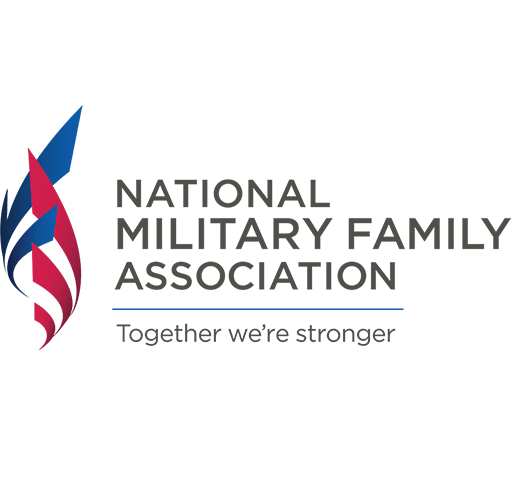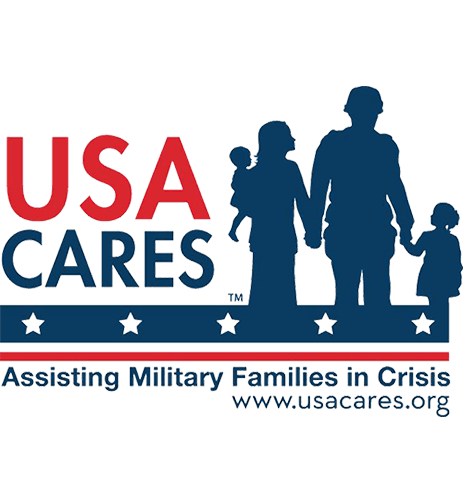MyCAA-APPROVED HEALTHCARE COURSE
CLINICAL MEDICAL ASSISTANT MASTER
Medical assistants with a clinical background perform various clinical tasks including assisting with the administration of medications and with minor procedures, performing an EKG electrocardiogram, obtaining laboratory specimens for testing, educating patients, and other related tasks.
CERTIFICATION: NHA-CCMA
PROGRAM COSTS: Varies
COURSE CONTACT HOURS: 900
PROGRAM DURATION: 6 Months
EXTERNSHIP AVAILABLE: Yes
COURSES AVAILABLE THROUGH
Tyler Junior College TJC-CMEH
Download TJC Course Outline
Texas A&M TAMIU-CMEH
Download TAMIU Course Outline

The Clinical Medical Assisting Profession
The Clinical Medical Assistant Master program is designed to prepare students to function as professionals in multiple healthcare settings. Medical assistants with a clinical background perform various clinical tasks including assisting with the administration of medications and with minor procedures, performing an EKG electrocardiogram, obtaining laboratory specimens for testing, educating patients, and other related tasks. Job opportunities are prevalent with physician’s offices, clinics, chiropractor’s offices, hospitals and outpatient facilities.
Access to health information is changing the ways doctors care for patients. With the nation’s healthcare system
moving to the electronic medical record, numerous employment opportunities exist for medical assistants, health
information systems staff, patient registration professionals and other related positions. Healthcare professionals
with the ability to understand, update and maintain the electronic health record are in great demand.
The Clinical Medical Assisting Master Program
This program prepares students to assist physicians by performing functions related to the clinical aspects of a medical office and prepare students to understand and use electronic records in a medical practice. Instruction includes preparing patients for examination and treatment, routine laboratory procedures, pharmacology, taking and
documenting vital signs, technical aspects of phlebotomy, the 12-lead EKG and the cardiac life cycle. This course reviews the implementation and management of electronic health information using common electronic data interchange systems and maintaining the medical, legal, accreditation and regulatory requirements of the electronic
health record.
The purpose of the Clinical Medical Assistant Master program is to prepare students to assist physicians by performing functions related to the clinical aspects of a medical office and manage electronic health information using common electronic data interchange systems while maintaining the medical, legal, accreditation and
regulatory requirements. This course covers the following key areas and topics:
- Clinical responsibilities of the medical office – assisting the physician with patient related care
- Preparing patients for examination and treatment, routine procedures and diagnostic testing
- HIPAA, patient confidentiality, legal aspects of healthcare and regulatory patient care issues
- Recording and taking of vital signs, blood pressure, and other patient care items related to the physician office visit
- Review and administration of medications, allergies & other pharmacology related items
- Laboratory procedures, phlebotomy and the proper techniques required to collect specimens for laboratory analysis
- Cardiology and the proper placement of leads when taking a 12 lead EKG
- Importance of the medical record as a legal document
- The effect of confidential communication laws, the release of information and HIPAA
- Provides a “real life” EHR experience using Medcan software to perform health information tasks
- Skills required to use and EHR to manage patient visit information including the examination, assessment notes and treatment plans.
- Importance of data accuracy, consistency, completeness, and security of information
National Certifications
- Students should have or be pursuing a high school diploma or GED.
- There are several National Certification exams that are available to students who successfully complete this program:
- National Healthcareer Association (NHA) Certified Clinical Medical Assistant (CCMA) exam
- National Healthcareer Association (NHA) Certified Phlebotomy Technician (CPT) exam
- National Healthcareer Association (NHA) Certified EKG Technician (CET) exam
- National Healthcareer Association (NHA) Certified Electronic Health Record Specialist
(CEHRS) exam
- In addition to facilitating entry-level clinical medical assisting related positions, this course is ideal for
students interested in pursuing a future formal Certified Medical Assistant (CMA), Nursing (LPN) or a
Nursing (RN) program.
Detailed Course Information
- Responsibilities of the clinical medical assistant and introduction to healthcare facilities
- Medical terminology, anatomy and physiology, circulation of the heart and blood vessels
- Care & safety of patients, medical & legal aspects of care, confidentiality and HIPAA
- Effective verbal and non-verbal communication, interpersonal skills and human behavior
- Aseptic techniques, infection prevention, universal precautions, proper use and disposal of biohazards and sharps
- Documenting patient medical histories, updating patient medical files, vital signs and documentation
- Applying sterile dressings, preparing patients for x-rays, performing various injections, administering oral medications, instructing patients on the proper usage of medications
- Phlebotomy, venipunctures and capillary sampling, collecting specimens and point of care testing
- Performing 12 lead EKGs and EKG strip analysis (P,Q,R,S,T wave form)
- Role of the EKG technician
- Function of the EKG department in a variety of settings (hospital, clinic, office, mobile service)
- Medical terminology related to electrocardiography
- Care and safety of patients including medical and legal aspects of patient care
- Anatomy and physiology of the cardiovascular system
- Electrophysiology, the conduction system of the heart, and the cardiac cycle
- Circulation of blood through the heart and vessels
- Lead placement for 12-lead electrocardiography
- Basic EKG interpretation of normal rhythms and arrhythmias
- EKG troubleshooting including recognizing artifacts
- Waves and measurements
- EKG strip analysis (P,Q,R,S,T wave-form interpretation)
- Identification of rhythms using the 12-lead EKG
- Pacemakers
- Holter monitoring and the echocardiogram
- The history of Phlebotomy and the roles and responsibilities of a Phlebotomy Technician
- Laboratory operations (e.g. safety, quality control,), quality assurance , laboratory law, ethics and regulatory issues
- Anatomy and physiology of the circulatory system and anatomy of the hand, leg & foot – including arteries and veins
- Universal precautions – safety protocols, infection control and medical asepsis
- Specimen collection, processing, handling, documentation and transportation
- Venipuntcures and skin puncture practice, syringe practice, heel puncture, protocol, syringe draws, etc.
Technical Requirements
- Windows 7, XP or Vista
- 56K modem or higher
- Soundcard & Speakers
- Firefox, Chrome or Microsoft Internet Explorer
MAC OS USERS
- Mac OS X or higher (in classic mode)
- 56K modem or higher
- Soundcard & Speakers
- Apple Safari
System will support the two latest releases of each browser. When using older versions of a browser, users risk running into problems with the course software.
- Windows Users: Firefox, Chrome, Explorer
- Mac OS Users: Safari, Chrome, Firefox
We recommend setting your screen resolution to 1024 x 768 pixels.
SUGGESTED PLUGINS
- Flash Player
- Real Player
- Adobe Reader
- Java

U.S. Department of Labor
Career Information
The information below provides helpful job information, statistics and projections for this program’s related career tracts.
| Career | Median Salary | Job Openings | Growth Rate | |
|---|---|---|---|---|
| Bookkeeping, Accounting, and Auditing Clerks | $38,390 | 186,600 | -1% to 1% | |
Description |
||||
| Compute, classify, and record numerical data to keep financial records complete. Perform any combination of routine calculating, posting, and verifying duties to obtain primary financial data for use in maintaining accounting records. May also check the accuracy of figures, calculations, and postings pertaining to business transactions recorded by other workers. | ||||
| Job Titles Include | ||||
| Account Clerk, Accounting Assistant, Accounting Associate, Accounting Clerk, Accounting Specialist, Accounting Technician, Accounts Payable Clerk, Accounts Payable Specialist, Accounts Payables Clerk, Accounts Receivable Clerk | ||||
Wages |
Bottom 15% | Median Salary | Top 10% | |
| United States | $23,880 | $38,390 | $59,630 | |
Employment |
current employment 2016 | projected job openings 2016 - 2026 | projected growth 2016 - 2026 | |
| United States | 1,731,000 | 186,600 | -1% to 1% | |
typical tasks |
||||
|
||||
| New Accounts Clerks | $34,990 | 4,000 | -2% or lower | |
Description |
||||
| Interview persons desiring to open accounts in financial institutions. Explain account services available to prospective customers and assist them in preparing applications. | ||||
| Job Titles Include | ||||
| Administrative Assistant, Customer Service Representative, Financial Services Representative, Loan Processor, Member Service Representative, New Accounts Representative, Personal Banker, Relationship Manager, Retail Banker, Retail Service Representative | ||||
Wages |
Bottom 15% | Median Salary | Top 10% | |
| United States | $25,990 | $34,990 | $50,010 | |
Employment |
current employment 2016 | projected job openings 2016 - 2026 | projected growth 2016 - 2026 | |
| United States | 42,000 | 4,000 | -2% or lower | |
typical tasks |
||||
|
||||
STILL CONSIDERING YOUR OPTIONS?
Check out our entire MyCAA-approved program offerings:
 STAY INFORMED
STAY INFORMED
If you’d like to know when we have new courses, new programs, new ideas, new promotions — you know, all new and good stuff — then get on this email list. We keep messages short and sweet, and only send them when there’s something really good happening, like giving away a vacation (yeah, we did that).











